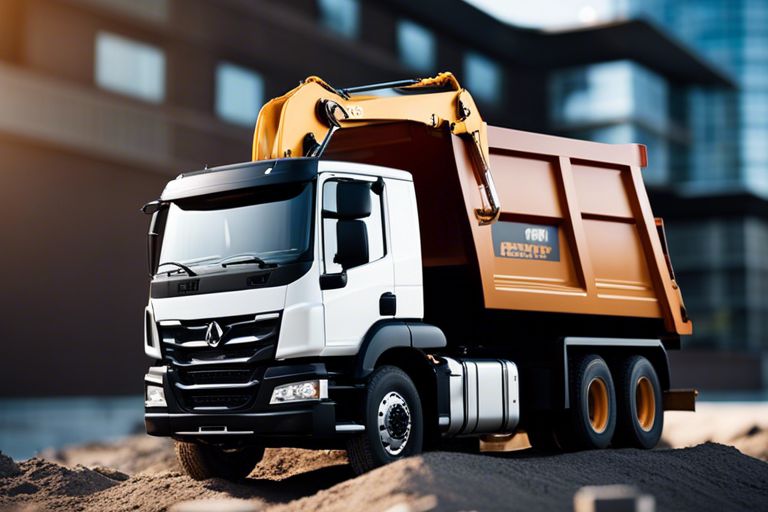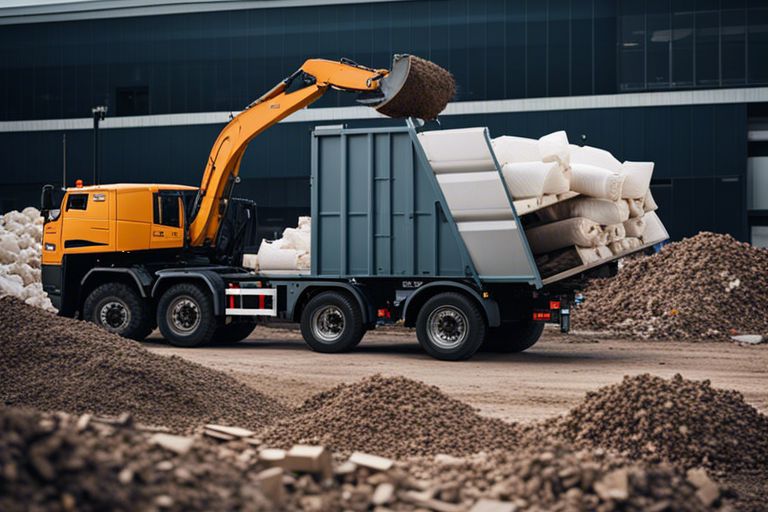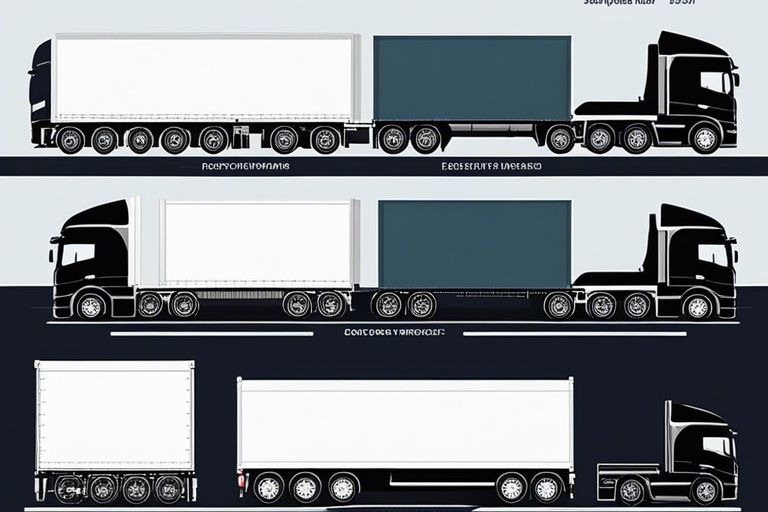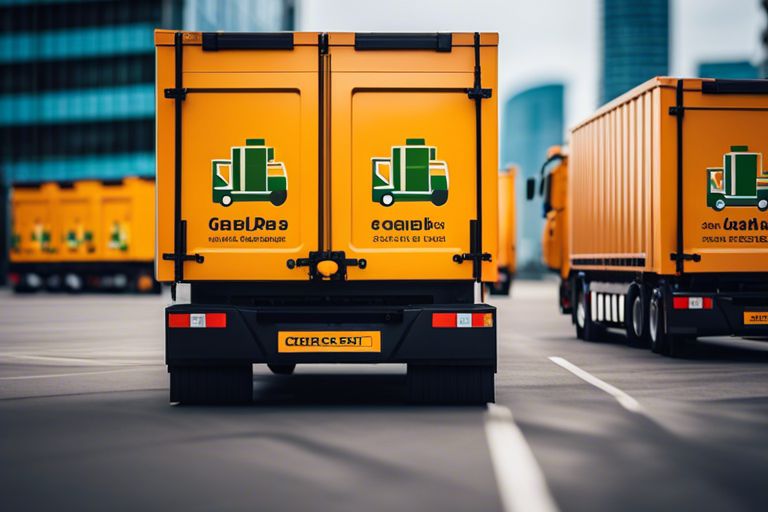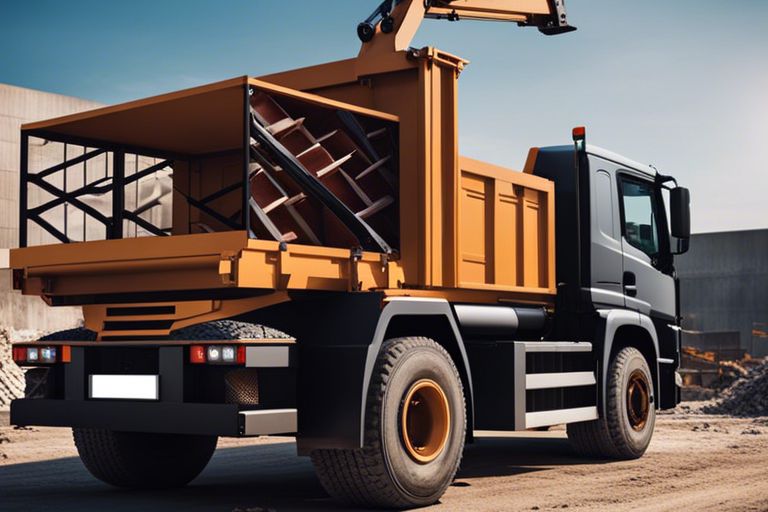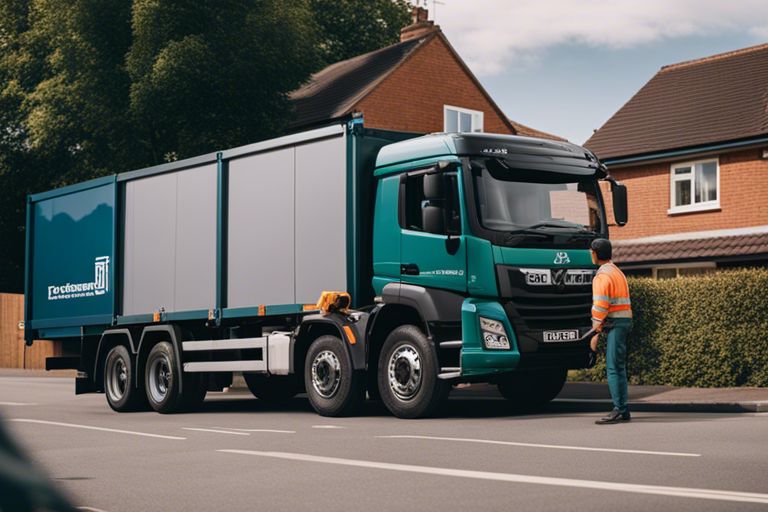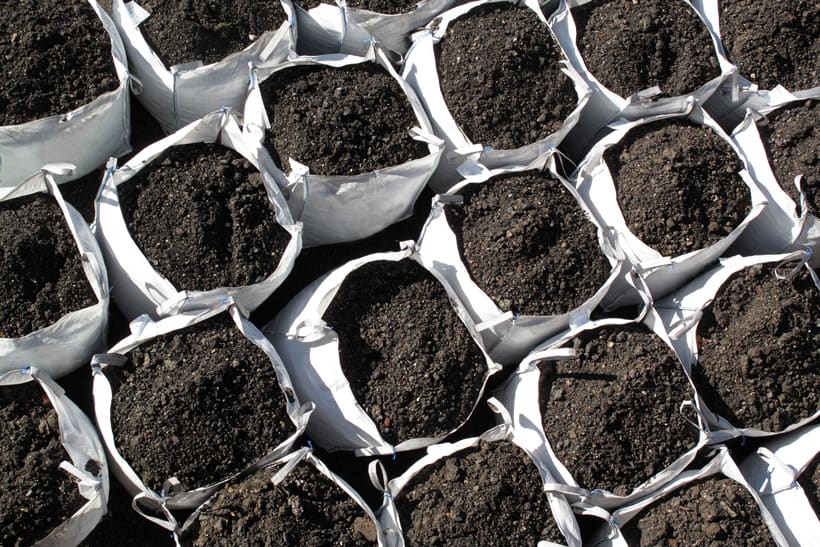Are you fed up with the ever-growing pile of waste in your home? Domestic waste removal is a critical aspect of maintaining a clean and healthy living environment. However, many homeowners unknowingly make critical mistakes when it comes to waste disposal. In this blog post, we will discuss the dos and don’ts of domestic waste removal to help you avoid potential hazards and environmental damage. For more information, you can also visit DO’S AND DON’T’S OF WASTE DISPOSAL.
Key Takeaways:
- Proper Segregation: It is crucial to segregate domestic waste into categories such as recyclables, non-recyclables, organic, and hazardous waste to ensure proper disposal and recycling methods are followed.
- Responsible Disposal: It is important to dispose of domestic waste responsibly by following local guidelines and regulations, such as not littering, avoiding illegal dumping, and using designated disposal facilities.
- Reduce and Reuse: As part of domestic waste removal, individuals should focus on reducing waste generation and reusing items whenever possible to minimise the impact on the environment and reduce overall waste production.
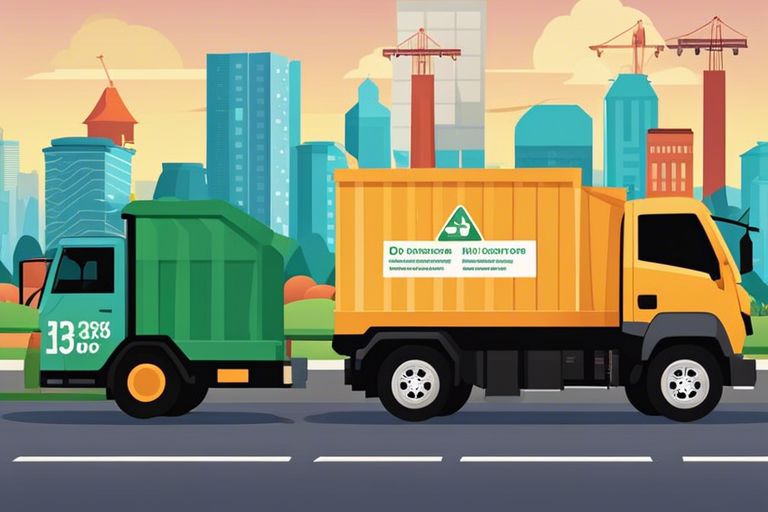
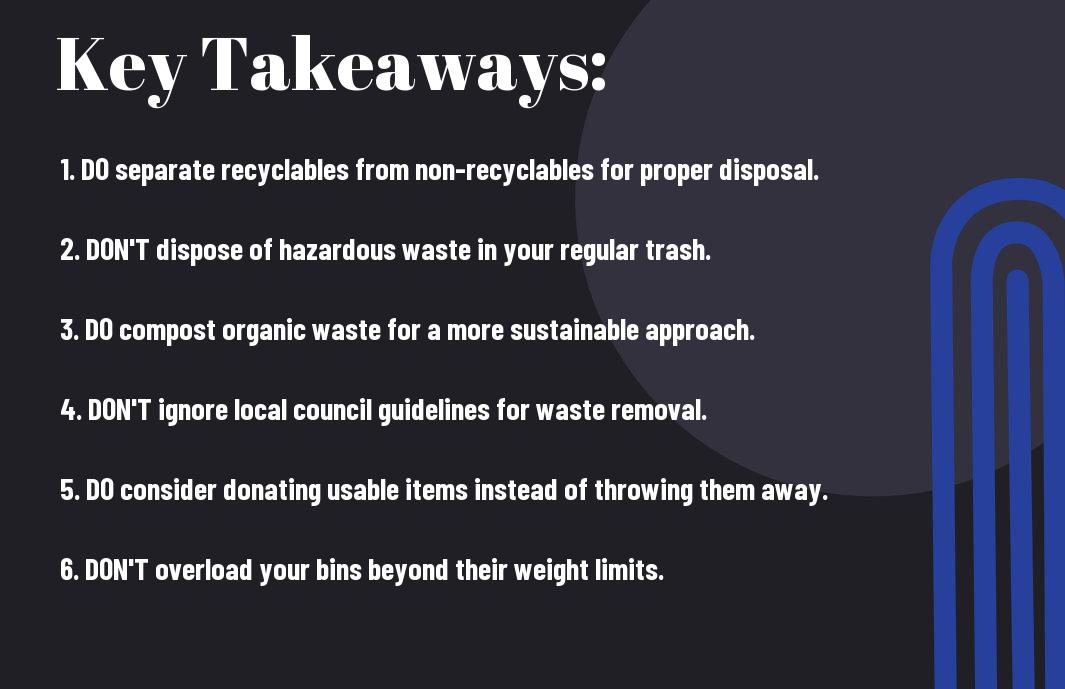
Dos of Domestic Waste Removal
Segregating Your Waste
One of the most important dos of domestic waste removal is to segregate your waste properly. This means separating recyclable materials from non-recyclable ones, as well as ensuring that hazardous waste is disposed of separately. By doing so, you are not only promoting environmental sustainability, but also making the waste management process much more efficient.
Segregating your waste also helps to reduce the risk of contamination and improve the quality of recyclable materials, which in turn benefits the overall waste management process.
Composting Biodegradable Waste
Another important aspect of domestic waste removal is composting biodegradable waste. By doing so, you can reduce the amount of organic waste that goes to landfills, and instead create nutrient-rich compost for your garden or plants. This not only benefits the environment by reducing methane emissions from landfills, but also provides a sustainable solution for managing biodegradable waste.
Composting biodegradable waste is a simple yet effective way to contribute to a circular economy and reduce the overall environmental impact of domestic waste.
Scheduling Regular Removal
To ensure effective domestic waste removal, it is essential to scheduled regular waste removal in your household. This means sticking to a consistent routine for putting out your bins for collection, and ensuring that waste is not allowed to accumulate for long periods of time. By doing so, you can maintain cleanliness and hygiene in your home, and prevent the build-up of odours and pests associated with accumulated waste.
Regular removal also promotes an organised waste management system and ensures that waste is disposed of in a timely manner, reducing the risk of environmental pollution and health hazards.
Utilizing Local Waste Management Services
When it comes to domestic waste removal, utilising local waste management services can be incredibly beneficial. Many local councils or authorities offer various waste management initiatives, such as recycling programs and household hazardous waste collections. By taking advantage of these services, you can ensure that your waste is managed in a responsible and sustainable manner, while also supporting your local community and reducing your environmental footprint.
Utilising local waste management services also promotes responsible waste disposal practices and ensures compliance with local regulations, ultimately contributing to a cleaner and healthier living environment.
Reducing, Reusing, Recycling
One of the fundamental dos of domestic waste removal is to embrace the principles of reducing, reusing, and recycling. By reducing the amount of waste we produce, reusing items where possible, and recycling materials that can be repurposed, we can minimise the impact of waste on the environment and conserve valuable resources. This not only reduces the amount of waste sent to landfill, but also lowers energy consumption and greenhouse gas emissions associated with the production of new materials.
Implementing the 3Rs – reduce, reuse, recycle – in domestic waste removal is essential for achieving a sustainable and circular economy, and plays a crucial role in protecting the planet for future generations.
Don’ts of Domestic Waste Removal
When it comes to domestic waste removal, there are certain practices that you should avoid at all costs. These “don’ts” are crucial to ensuring the safety of yourself, your community, and the environment. By following these guidelines, you can effectively manage your waste in a responsible and sustainable manner.
Mixing Hazardous Waste with General Trash
One of the most dangerous “don’ts” of domestic waste removal is mixing hazardous waste with general trash. Hazardous waste includes items such as batteries, paint, chemicals, and electronic devices. When these items are combined with general household waste, they pose a serious risk to sanitation workers, the environment, and public health. It is essential to dispose of hazardous waste separately through designated collection facilities or special disposal services to prevent contamination and potential harm.
Littering and Illegal Dumping
Another critical “don’t” of domestic waste removal is littering and illegal dumping. Improper disposal of waste by tossing it into public spaces, water bodies, or private properties is not only illegal but also detrimental to the environment and public health. Littering and illegal dumping can lead to pollution, environmental degradation, and harm to wildlife. It is imperative to dispose of waste responsibly and legally by using designated bins, recycling facilities, and waste collection services.
Proper disposal of hazardous waste and general trash is essential to protect sanitation workers, the environment, and public health. It is illegal and harmful to litter or illegally dump waste in public spaces or water bodies. Responsible waste management is crucial for maintaining a clean and sustainable environment.
Overlooking Electronic Waste
Overlooking electronic waste is a common mistake in domestic waste removal. Electronic devices such as old computers, televisions, and mobile phones contain hazardous materials that can leach into the environment if not properly disposed of. These materials include lead, mercury, and flame retardants, which can pollute soil and water sources. It is vital to recycle electronic waste through certified e-waste recycling programmes to prevent environmental contamination and health risks.
Electronic waste must be handled with care and disposed of through certified recycling programmes to avoid environmental pollution and health risks associated with hazardous materials.
Ignoring Community Guidelines
Ignoring community guidelines for waste disposal is another “don’t” of domestic waste removal. Many local councils and communities have specific regulations and recommendations for waste disposal to promote sustainability and environmental protection. Disregarding these guidelines can lead to fines, environmental harm, and community discord. It is crucial to adhere to community waste management guidelines and work towards the collective goal of maintaining a clean and healthy environment.
Adhering to community waste management guidelines is essential for promoting environmental sustainability and maintaining a harmonious community. Disregarding these guidelines can result in negative consequences for individuals and the environment.
Special Considerations
When it comes to domestic waste removal, there are a few special considerations that need to be addressed. To ensure that you are following the correct guidelines, it’s important to understand the 6 Do’s and Don’ts For Waste Removal. For more information, you can refer to 6 Do’s and Don’ts For Waste Removal.
Handling Bulky Items and Garden Waste
When dealing with bulky items and garden waste, it’s important to consider the proper disposal methods. Bulky items such as furniture or appliances may require special arrangements for collection or disposal, while garden waste like tree branches or grass clippings may need to be handled differently to regular household waste. Always check with your local waste disposal facility for specific instructions on how to deal with these types of waste.
Covid-19 Waste Disposal Protocols
In light of the Covid-19 pandemic, it’s crucial to follow specific waste disposal protocols to ensure the safety of yourself and others. This may include properly bagging and sealing any potentially contaminated waste, such as tissues or disposable face masks, and ensuring that it is disposed of in the appropriate manner. Always stay informed about the latest guidelines and regulations surrounding Covid-19 waste disposal to reduce the risk of spreading the virus.
For more detailed information on Covid-19 waste disposal protocols, including specific guidelines for handling potentially contaminated waste, please refer to the relevant authorities or waste management organisations in your area. It’s important to stay up to date with the latest information and follow the guidelines to protect yourself and others from the potential hazards associated with Covid-19 waste.
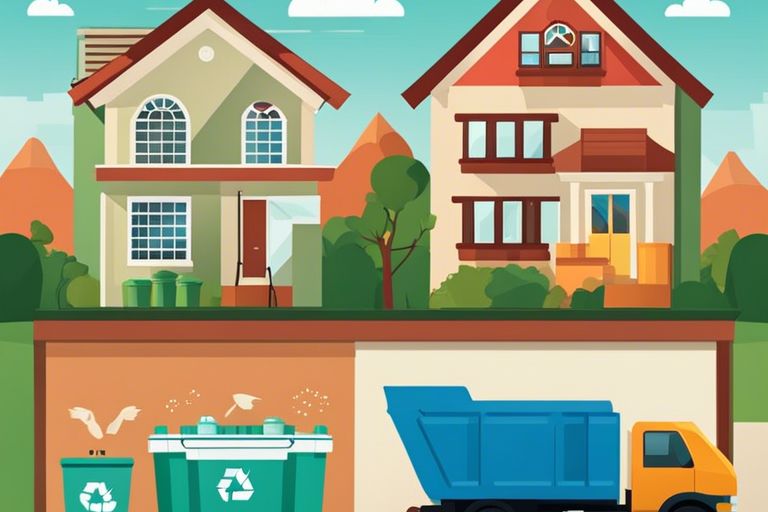
The Dos and Don’ts of Domestic Waste Removal
In conclusion, adhering to the dos and don’ts of domestic waste removal is crucial for maintaining a clean and safe living environment. By following the proper guidelines, such as separating recyclables from general waste and disposing of hazardous materials appropriately, households can significantly reduce their ecological footprint and contribute to a more sustainable future. It is imperative to be mindful of the impact our waste has on the environment and take responsibility for its proper management. Failing to adhere to the dos and don’ts not only poses a risk to the environment but also to public health and safety. Therefore, it is essential for individuals to be fully informed and compliant with the regulations surrounding domestic waste removal. By making informed choices and taking proactive steps, we can all play a part in creating a cleaner and healthier environment for ourselves and future generations.
FAQ
Q: What are the dos and don’ts of domestic waste removal?
A: The dos of domestic waste removal include segregating your waste, recycling wherever possible, and following your local council’s guidelines. The don’ts include illegally dumping waste, mixing recyclables with general waste, and disposing of hazardous materials in your household bins.
Q: How should I segregate my waste for domestic waste removal?
A: You should separate your waste into categories such as general waste, recyclables (paper, plastic, glass, etc.), organic waste, and hazardous materials. This makes it easier for recycling facilities and waste management companies to handle and process your waste appropriately.
Q: Can I dispose of electronic waste with my household waste?
A: No, electronic waste should not be disposed of with your household waste. Old electronics should be recycled at designated collection points or taken to e-waste recycling facilities to ensure that valuable materials are recovered and hazardous substances are safely handled.
Q: Are there any restrictions on the types of waste I can dispose of in my household bins?
A: Yes, there are restrictions on the types of waste that can be disposed of in household bins. Some common items that should not be placed in your household bins include paint, batteries, medical waste, and asbestos. These items require special handling and disposal methods to prevent harm to the environment and public health.
Q: What should I do if I have large or bulky items to dispose of?
A: If you have large or bulky items to dispose of, such as furniture or appliances, you should contact your local council to arrange for a special collection or find out about local disposal facilities. Dumping bulky items on the roadside is illegal and can result in fines or other penalties.

